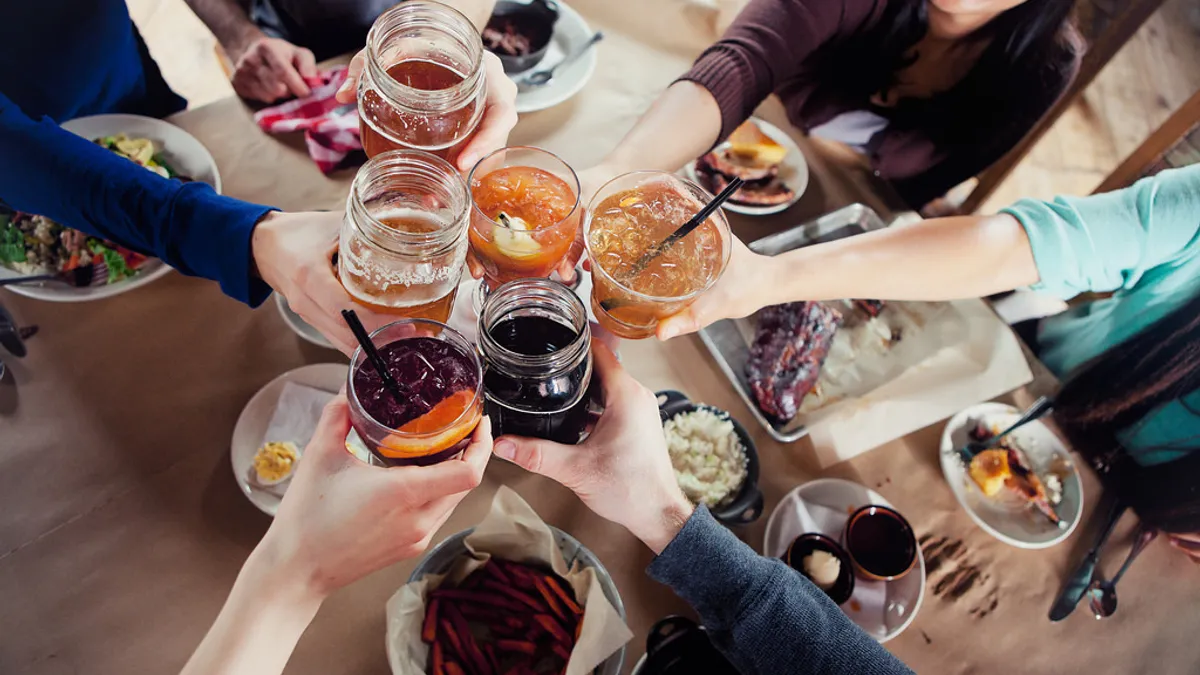Dive Brief:
- A study of more than 12.5 million social media posts and other online commentary by millennials during the past year conducted by CBD Marketing substantiate many long-held assumptions about their food and beverage consumption and shopping habits, according to a statement.
- Research findings show millennials prefer healthy and natural foods. They like to cook and prepare meals. And they support alternative food distribution vehicles like meal delivery and meal services.
- "Consumer products companies are obsessed with millennials, and with good reason," CBD Marketing's co-CEO Lori Colman said in the statement. "They are one-fourth of the population and represent $10 trillion in lifetime buying power. Millennials share their opinions and buying habits online via social media platforms and on other sites. Businesses and brands that mine this treasure trove of online data will be the ones that market their products successfully."
Dive Insight:
More than any other shopper segment, millennials — a generation that grew up with the internet — make a habit of sharing their sentiments via social media. This kind of online data and information can be of enormous value to brand marketers and retailers in understanding shopper preferences and attitudes. More importantly, acting on it can develop marketing and merchandising approaches — both in-store and online — that resonate with different shopper groups.
Some have wondered if grocers’ focus on millennial spending and shopping habits are overblown, but this CBD Marketing study shows just how much this demographic is shaping the retail space. The research provides a wealth of insights on millennial shopper sentiments and food-buying behavior based on the analysis of 8.6 million food-related and 2.2 million beverage-related posts.
Fortunately, most of the findings align with what retailers and brands have long thought about this younger shopper generation. Millennials want fresh, healthy and natural food and beverages. They care about the environment and expect companies they deal with to be transparent. Soda and other sugary drinks are out, while better-for-you beverages — like sparkling water, kombucha and plant-based milks — are in. They favor the likes of Trader Joe’s and Whole Foods over Walmart and other conventional grocers.
Though not totally surprising, an interesting finding is that millennial shoppers aren’t interested in dieting, fat-free food or “helper” convenience foods, which seems to contradict the picture of the always-on-the-go millennial shopper. Instead, CBD Marketing’s research finds that millennials like to cook and prepare meals. They also support alternative food distribution methods, including grocery delivery and meal services.
There are a number of ways grocers can cater to this younger shoppers' desire for fast yet fresh food. Food retailers increasingly are leveraging the perimeter of the store to feature prepared food stations and add in-store restaurants, coffee and tea bars, and smoothie stations. Some grocers are adding in-store signage that offers recipes, cooking explainers and meal preparation tips. And a growing roster of retailers — including Kroger and Publix — launched their own meal kit brands. Just last week, Albertsons announced it was acquiring online meal kit company Plated.








